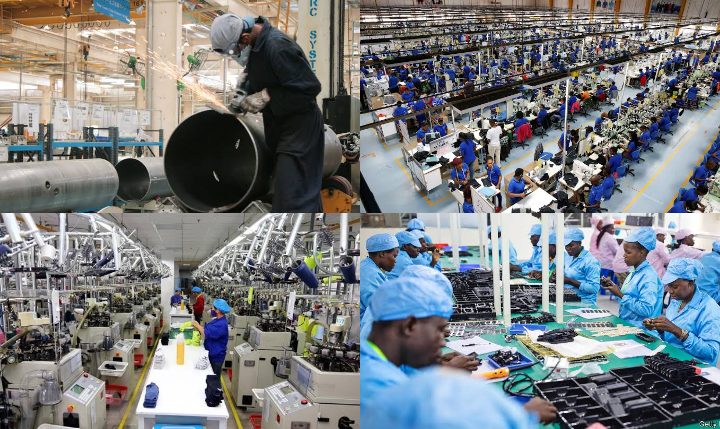For too long, Nigeria has danced around the promise of industrialisation without fully embracing the structural transformation required to deliver it. At the heart of this unrealised potential lies a sluggish manufacturing sector, once poised to be a cornerstone of national development, but now overshadowed by an overreliance on oil, volatile imports, and underperforming industries. If Nigeria is truly serious about achieving sustainable economic growth, job creation, and poverty reduction, it must urgently awaken its manufacturing sector from dormancy.
Manufacturing holds unmatched potential as a driver of economic resilience. It creates jobs at scale, boosts export revenues, deepens value chains, and stimulates innovation. In developed and emerging economies alike, from Germany to China and Vietnam, manufacturing has served as the backbone of structural transformation. Nigeria, despite having Africa’s largest population and abundant natural resources, still lags woefully behind. According to the National Bureau of Statistics (NBS), the manufacturing sector contributed just about 9 per cent to GDP in 2024, barely improved from a decade ago.
Several factors have conspired to keep the sector underperforming. Chief among them is the country’s unreliable power supply, which drives up production costs and forces manufacturers to rely on expensive generators. Access to finance remains another stumbling block. Small and medium enterprises (SMEs), which form the bedrock of local manufacturing, often lack the collateral or credit history required to obtain affordable loans. Foreign exchange volatility also hinders the import of machinery and raw materials. The result is a sector that produces below capacity and struggles to compete even within the domestic market.
The situation is further compounded by Nigeria’s infrastructure deficit. Poor road networks, dilapidated ports, and inefficient logistics systems all raise the cost of doing business. Policies, while often well-intentioned, are inconsistently implemented and frequently reversed, discouraging long-term investment. Insecurity, particularly in key agricultural and industrial zones, disrupts supply chains and diminishes investor confidence.
Despite these challenges, the pathway to revitalising Nigeria’s manufacturing sector is clear and urgent.
First, government must prioritise stable and affordable electricity. The recent push to decentralise power generation and allow subnational grids is a welcome step, but implementation must be fast-tracked with clear incentives for private sector participation.
Second, the Central Bank and commercial lenders must work together to design tailored financial products for manufacturers, particularly SMEs. The government could back this effort with credit guarantees and targeted subsidies for local machinery acquisition.
Third, infrastructure development should be accelerated, especially transport corridors connecting industrial clusters to ports and urban markets. The full implementation of the African Continental Free Trade Area (AfCFTA) also offers Nigeria a strategic incentive to ramp up production for export.
Fourth, policies must protect local industries while also encouraging innovation. Import substitution strategies should be smart—not just about banning foreign goods, but about making local alternatives competitive in price and quality.
Finally, industrial parks and special economic zones should be upgraded with modern facilities, research centers, and tax incentives to attract investors and foster technology transfer.
The benefits of revitalising the manufacturing sector are immense. Millions of jobs can be created for Nigeria’s restless youth population. Foreign exchange pressure can be eased by reducing import dependency. Non-oil exports can diversify government revenues. Above all, a vibrant manufacturing base would position Nigeria not just as a consumer market, but as a continental production hub.
As the nation continues to grapple with rising inflation, unemployment, and currency volatility, the time has come for a bold, consistent commitment to rebuilding what is perhaps its most promising growth engine. A reawakened manufacturing sector is not just an economic necessity; it is the bedrock of Nigeria’s future prosperity. The government, private sector, and civil society must work in unison to ignite this revival. The clock is ticking, and Nigeria cannot afford to snooze any longer.





